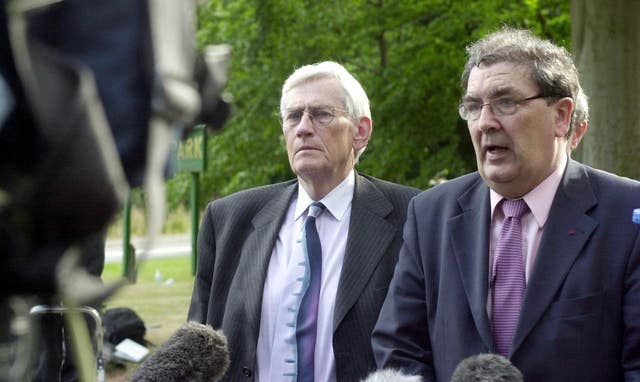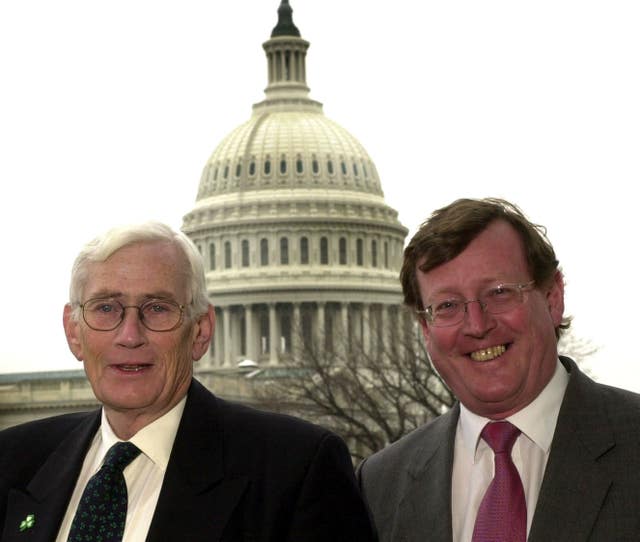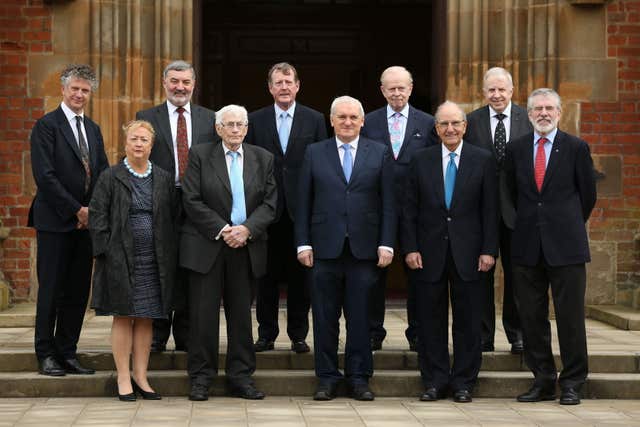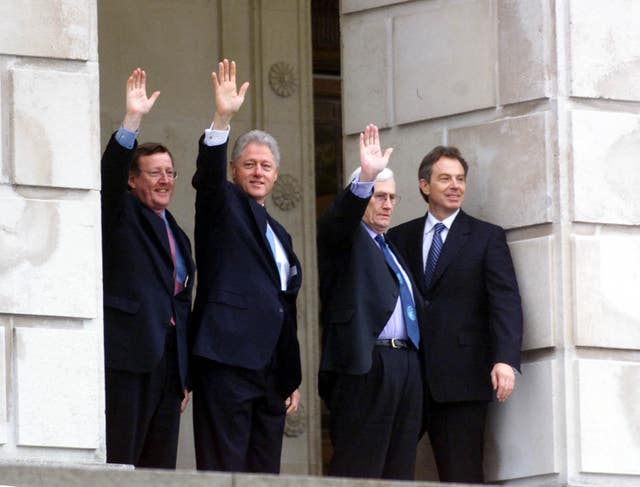Towering figure in political generation which delivered end of the Troubles
After the signing of the Good Friday Agreement Seamus Mallon would go on to become Northern Ireland’s deputy first minister.

A straight-talking colossus of Irish politics, Seamus Mallon devoted his life to securing peace and justice for the island he loved.
Mallon, from south Armagh, was a towering figure in the political generation which delivered an end to the Northern Ireland Troubles.
While SDLP leader and Nobel Laureate John Hume has been hailed as an architect of the Good Friday Agreement, his long-standing deputy leader was one of its engineers – a man whose determination helped build the powersharing structures from the ground up.
In a customary blunt assessment, he famously described the April 1998 deal as “Sunningdale for slow learners” – a reference to an ill-fated peace settlement of the 1970s.
For Mallon, the Good Friday Agreement not only symbolised hope for the future, but also the futility of decades of sectarian bloodshed that had gone before.

His partnership with Ulster Unionist first minister David Trimble was the manifestation of the region’s new beginning.
Known as the “odd couple”, their relationship was at times turbulent – both resigned and were reappointed at different junctures – but they nevertheless developed deep respect for each other.
Explaining the journey they travelled together in those stormy years when Northern Ireland edged out of the darkness, both would point to an atrocity weeks before the deal was signed.
Philip Allen, a Protestant, and Damien Trainor, a Catholic, were shot dead by loyalist paramilitaries in the Railway Bar in Poyntzpass in Co Armagh on March 3, 1998.
Trimble and Mallon both travelled independently to console the bereaved families.

It was a powerful show of solidarity amid the tense negotiations that would ultimately bring peace.
“It certainly strengthened my resolve about getting an agreement,” Mallon told the PA news agency on the 20th anniversary of the 1998 deal.
“The symbolism of David Trimble and myself together was a stark reminder for ourselves and for everyone else that what we were involved in, in the talks, was essentially to prevent that ever happening again.”
Trimble visited the beside of his former partner-in-government days before he died at the age of 83.
Born in Markethill in 1936, Mallon began his working life as a primary school teacher and headmaster.
He was a combative GAA player who had a passion for many other sports.

He would rise to the position of deputy leader in 1979 – a point at which his career would forever be entwined with newly appointed party leader Hume.
There was often tension at the heart of the Hume/Mallon axis, never more so than when the leader failed to tell his deputy about his secret talks with Sinn Fein president Gerry Adams – discussions that effectively marked the start of the peace process.
But they nevertheless formed a formidable duo – men whose unstinting abhorrence of violence drove them in relentless pursuit of peace.
Mallon served briefly as an Irish senator in the early 1980s and, after a number of unsuccessful attempts to win a Westminster seat, he became MP for Newry and Armagh in 1986.
Always outspoken, he was at times a vociferous critic of the conduct of the security forces. He also never baulked at calling out IRA brutality.
His views brought death threats and saw petrol bombers target his home. But he continued to speak out, undeterred.
Famed for his stubbornness and acerbic wit, Mallon was never one to fall into line.

Jarring with the congratulatory comments of those counterparts who had walked to the microphones before him, the 81-year-old Mallon was in no mood to dwell on past achievements.
He instead used a rare return to the public spotlight to launch a blistering attack on the DUP and Sinn Fein, the two parties central to the collapse of the institutions he had spent a life constructing.
“Am I sad? Yes. Am I angry? Yes, very angry,” said the visibly-frail former statesman.
“Especially when I watch television sitting in my house, just me and the dog, and I watch the hypocrisies which are unbelievable and the untruths which are believable.
“Politics has been debased and diminished by these two political silos which have almost Balkanised the Northern Ireland that I live in.
“It is the future we should be looking at.”
It was typically Mallon. Unflinching to the end.





